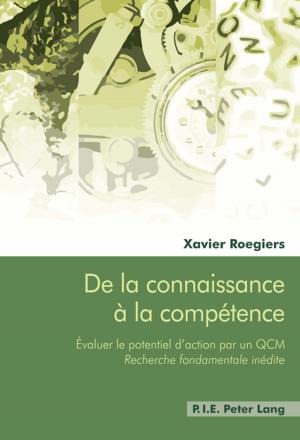Historical Memories in Culture, Politics and the Future
The Making of History and the World to Come
Nonfiction, Health & Well Being, Psychology, Forensic Psychology, Occupational & Industrial Psychology, History| Author: | Rahman Haghighat | ISBN: | 9783035398632 |
| Publisher: | Peter Lang | Publication: | January 30, 2014 |
| Imprint: | Peter Lang AG, Internationaler Verlag der Wissenschaften | Language: | English |
| Author: | Rahman Haghighat |
| ISBN: | 9783035398632 |
| Publisher: | Peter Lang |
| Publication: | January 30, 2014 |
| Imprint: | Peter Lang AG, Internationaler Verlag der Wissenschaften |
| Language: | English |
This book is written to satisfy the individual’s desire for intellectual stimulation, to sow in the mind the seed of new ideas, and involve the reader in productive debates. It covers culture, history and the future, raising questions, presenting arguments and engaging the enquirer in reflection. It illustrates the relationship between past history and current social practices, proposing the concept of compartmentalization of behaviour, where history is understood to contribute to why there are so many displaced excesses amongst the English, alongside an ethos of moderation – why, in a country with such high civility, there is hooliganism, why riots in English cities can be particularly violent, why the country has the highest rate of teenage pregnancy in Europe, why it lags behind many others in the early diagnosis of cancer – and what can be done about this.
The book also explores what affects us all globally – the making of history, the psychology of dictatorships, the unconscious in history, the development of new democracies, the emerging psychosocial trends in the world to come, the cognitive, emotional and identity-ethos of the evolving century and the «future» of history. Finally, it identifies history’s foundations and the fundamental human tendency which, beyond the class interests of Marx and the search for recognition of Hegel, motivates and perpetuates history itself.
This book is written to satisfy the individual’s desire for intellectual stimulation, to sow in the mind the seed of new ideas, and involve the reader in productive debates. It covers culture, history and the future, raising questions, presenting arguments and engaging the enquirer in reflection. It illustrates the relationship between past history and current social practices, proposing the concept of compartmentalization of behaviour, where history is understood to contribute to why there are so many displaced excesses amongst the English, alongside an ethos of moderation – why, in a country with such high civility, there is hooliganism, why riots in English cities can be particularly violent, why the country has the highest rate of teenage pregnancy in Europe, why it lags behind many others in the early diagnosis of cancer – and what can be done about this.
The book also explores what affects us all globally – the making of history, the psychology of dictatorships, the unconscious in history, the development of new democracies, the emerging psychosocial trends in the world to come, the cognitive, emotional and identity-ethos of the evolving century and the «future» of history. Finally, it identifies history’s foundations and the fundamental human tendency which, beyond the class interests of Marx and the search for recognition of Hegel, motivates and perpetuates history itself.















